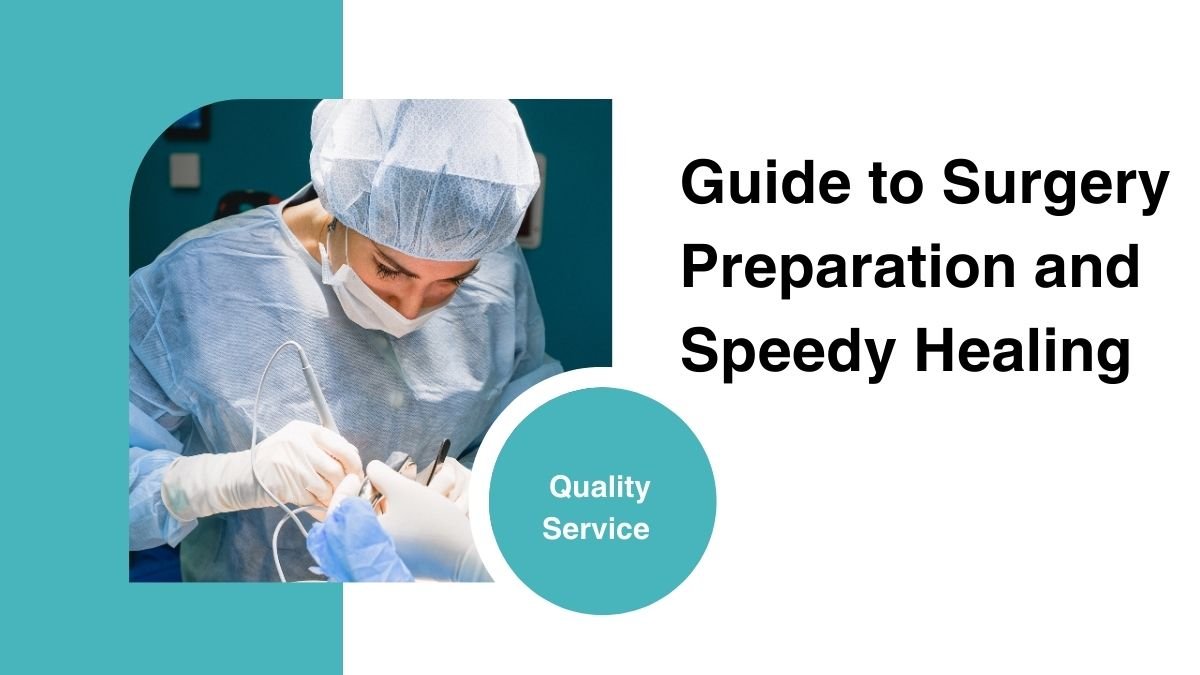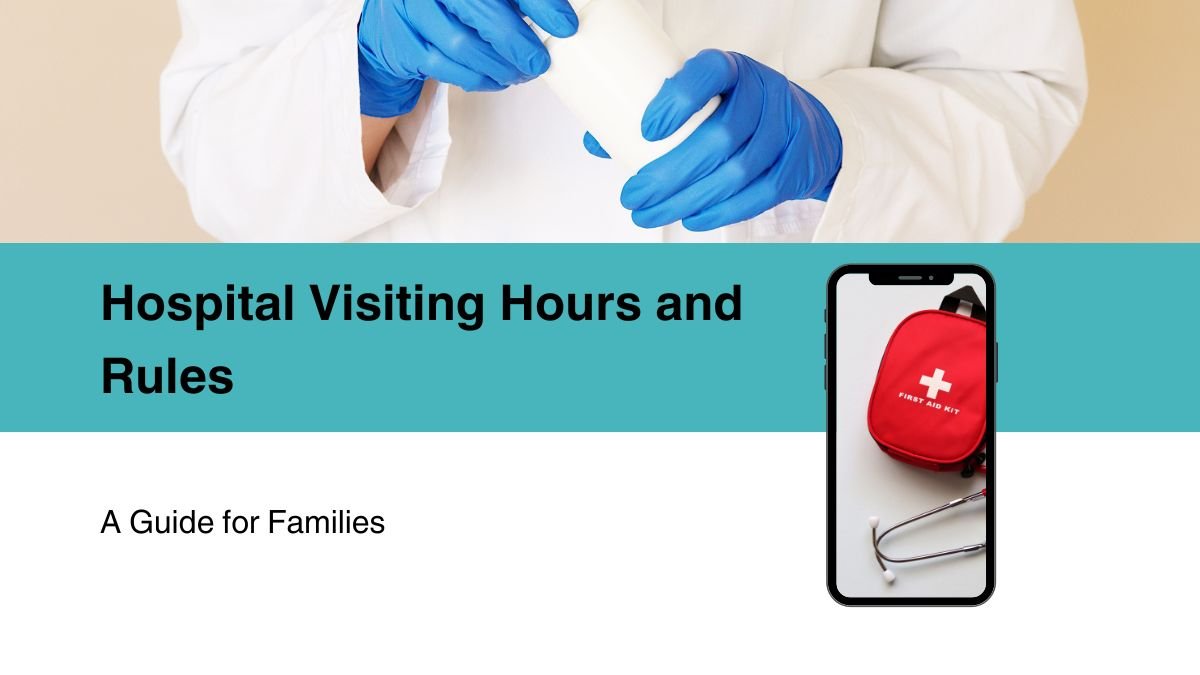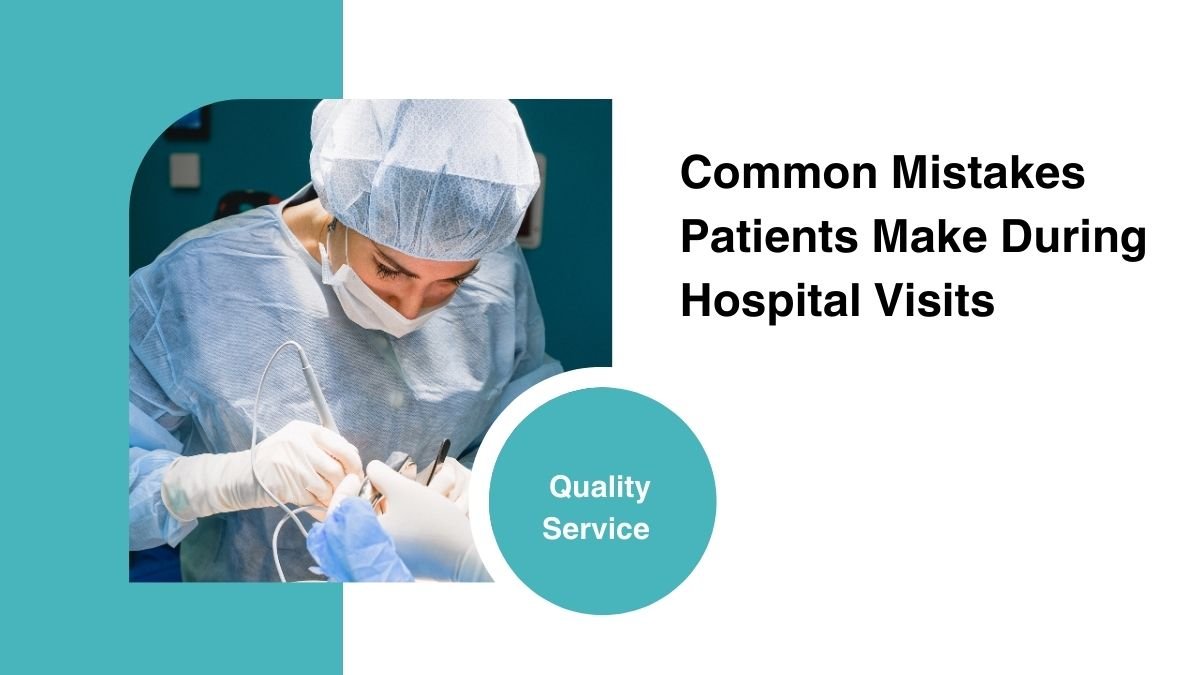For many people, the prospect of surgery can be an emotionally stressful one. Anxieties about pain, the length of recovery and potential complications are all natural. But as surgery is very often met with well-prepared minds, swifter recovery and better surgical outcomes, this guide promises to take you through everything from pre-op preparations to post-ops so you can confidently and cheerfully go through the process.
If you are worried about the surgery that is coming up, this article is for you. Here, there are step-by-step checklists, advice on what you should do before and after the surgery, and most of what you need to be in your way smooth sailing throughout the surgery and its aftermath.
Why Prepare for Surgery?
Beyond making it to the hospital on time, preparedness means preparing the body and mind so that the surgery has the results desired in an outcome. Less risks, faster recovery, and a sense of greater control will be present in good preparation.
Mental and emotional preparation
It is as much a physical preparation for surgery as it is a mental one. Thinking of negative outcomes and developing anxiety could slow recovery. Some ways of doing this:
- The practice of meditation and deep breathing techniques.
- If fear creeps in, consult your counselor or nurse.
- Sign up for preoperative educational seminars to learn about the surgery and procedure.
What to Do before Surgery: a Step-by-Step Guide
- Illness Informs SurgeonIf you suddenly become ill before surgery-attached with symptoms such as coughing, fever, or any kind of sickness-always inform your surgeon. This is as important to your safety as to the success of the surgery itself.
- Skin and Body Care
- Avoid destructive activities on the skin around the area to be operated.
- No shaving with a razor for three days before the operation.
- Do not have cuts, scratches, or mosquito bites.
- Start Preparing EarlyPreparation should begin once your date for surgery has been fixed, even if it’s a few months before. You can still put fitness and diet in place.
- Managing medications
- List every medication you take, keeping them in their original containers.
- Share this list with your doctor or nurse during the pre-op check-up.
- Especially for those who take diabetes tablets or insulin, consult your care team on this subject.
Travel and make hospital preparations
Planning the travel
Before surgery, you should plan your travel by taking a trusted adult along to help you. It doesn’t matter if this is a short drive to the hospital or an overnight stay; having someone there makes a big difference.
Packing hospital essentials
The right items can make sure that your stay in the hospital is comfortable and convenient. Some of the most important objects are:
- Pajamas and underwear
- Clothes for discharge
- Slip-on shoes or non-slip slippers for walking
- Hand towel and toiletries
- Cash and medicines
- Glasses or contact lenses
- Favorite toy or blanket for children
Diet and Hydration
One of the most important factors that keep the body ready for the operation is proper diet and hydration.
- Obey the diet prescribed by doctors.
- Follow the instructions on withholding food and water before the operation.
- Ensure a healthy intake of fresh fruits, vegetables, proteins, and whole grains. They will ensure a strong body and a quick recovery.
Personal Hygiene
- Bathing should be done the night before the operation and the morning thereafter.
- If there is any special soap prescribed by the surgeon after the bath, it will be used.
- His hands wash thoroughly and removes all jewelry and piercings before coming to the hospital.
Home Preparation
- Preparation of the home where the person may spend a very comfortable and safe recuperation period after the surgery is important.
- Maintain a clean home and remove items that may cause conditions under which one hazards a slip or obstruction.
- Prepare essential food items.
- Ask family and friends to help out, like doing all the cooking, cleaning, or babysitting.
Pre-operative assessment and tests
Medical history and physical examination
- Presentation of past surgeries, illness and medications
- Vital signs check such as blood pressure, heart and respiratory rate
- Allergies, particularly those to medications or anesthesia
- Blood and urine tests
- CBC for checking of anemia or infection
- Liver and kidney functions
- Electrolytes
- Coagulation test (test for blood clotting)
- Blood sugar test (for diabetics)
Imaging tests
X-rays, MRI or CT scans will give the best picture of the surgical area. This will help the surgeon to plan out the operation.
Anesthesia and pain management
Meet with the anesthesiologist
- Share medical history
- Mention if any relative has a problem with anesthesia
- Ask all the questions
Types of anesthesia
- General anesthesia: Unconsciousness is produced entirely.
- Regional anesthesia: Numbs a great area of the body.
- Local anesthesia: A small area with the patient maintained conscious awareness.
Pain management
- Control pain with drugs and physical therapy after the action.
- PCA (Patient-Controlled Analgesia) can also be utilized.
- Epidural analgesia can be used after major surgeries.
Change Your Way of Living
- Exercise: Regular exercise leads to faster recovery. Programs of prehab may also be of assistance.
- Quit smoking: This improves blood flow and infection is decreased.
- Proper diet: Eat foods rich in vitamins, proteins and minerals.
On the day of surgery
- On time: Reach the hospital one to two hours early.
- Comply with Instructions
- Start pre-op fasting. Abstain from alcohol and smoking, in the last final preparations.
- Follow Approaches: Loose clothing, Jewelry and makeup removed.
Recovery post-surgery
Prepare Assistance
- Help from family, friends or caregiver.
- Keep help with eating, laundry and other chores.
Stock Essentials
- Keep Healthy Snacks and Food Items.
- This Lessens the Time Needed to Go out of House.
Follow-ups
- Attend every appointment.
- Questions ready in advance to be discussed with the doctor.
Final Words
Preparing for surgery is a well-organized process that makes it better for the patient, as well as allows quick recovery. It includes pre-op assessment, managing medications, diet, lifestyle changes and post-op planning. You can therefore enter it with confidence and quickly recover as a result of right preparations.
FAQs
- What to do if a cold or fever strikes you just before surgery?
For example, notify your surgeon immediately. - What to pack for the hospital?
Pajamas, clothes, underwear, slippers, toiletries, cash, medicines and glasses. - Why is pre-op assessment important?
It helps to understand your fitness and the potential risk for surgery. - Post-operative treatment of pains.
Medications, body movement therapy and relaxation techniques. - What lifestyle changes to make before surgery?
Regular exercise, quitting smoking, balanced diet. - How to build up immunity before surgery?
Nutritious diet, adequate sleep, proper hydration, and management of stress.









